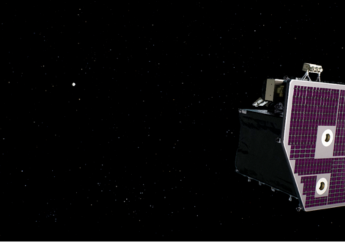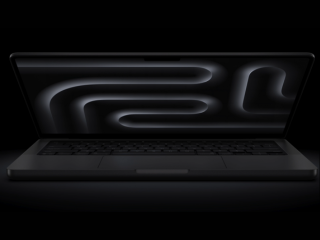- Home
- Science
- Science News
- NASA Astronauts Aboard ISS To Use Augmented Reality Technology To Repair Tools
NASA Astronauts Aboard ISS To Use Augmented Reality Technology To Repair Tools
NASA's T2 Augmented Reality (T2AR) project aims to help astronauts carry out maintenance of tools easily.

Photo Credit: NASA
Astronaut Soichi Noguchi tries out the new AR glasses aboard ISS
NASA is developing an augmented reality (AR) application for astronauts to enable them to inspect and maintain equipment on the International Space Station (ISS) without needing assistance from ground control. This, the agency hopes, will reduce the impact of communication delays between the ISS crew and NASA mission control in Houston, Texas, US. While the communication delay is unnoticeable mostly, NASA says this project will increase the autonomy of astronauts in making quick and informed decisions. This project will primarily benefit the space agency in exploring the Moon and eventually Mars.
Usually, astronauts are given instructions from ground control on a PDF file that can be viewed on a computer or tablet. But holding these gadgets in hand while working on machinery in a tight space limits productivity. In a blog post, NASA said the T2 Augmented Reality (T2AR) project helps display instructions in the goggles of astronauts and direct their gaze with 3D cues, showing them the actual work sites. It can also follow verbal instructions to navigate procedures. This eases the process of inspection and maintenance.
The AR technology uses Microsoft's HoloLens with custom-built AR software. In April, astronaut Soichi Noguchi of Japan Aerospace Exploration Agency (JAXA) was tasked with maintenance of a piece of exercise equipment, with the help of the new technology. Two more ISS astronauts used it later, and some more tests are planned.
“AR tools hold the promise of allowing us to pre-package guidance and expertise,” said Bryan Dansberry, ISS associate scientist at Johnson Space Centre. He said the space station is the “perfect platform” to test AR systems and refine these tools.
There has been a renewed focus on exploring the Moon as a stepping stone to reach space farther away from Earth. Through the Artemis programme, NASA intends to use new technology for lunar exploration and prepare for human missions to Mars. To make the most of these missions, NASA has developed some new technologies and one of them is augmented reality as the communication delays beyond the Moon are sure to last longer. Artemis aims to land on the Moon's South Pole, where no human has gone before, by 2024.
For details of the latest launches and news from Samsung, Xiaomi, Realme, OnePlus, Oppo and other companies at the Mobile World Congress in Barcelona, visit our MWC 2026 hub.
Related Stories
- Samsung Galaxy Unpacked 2026
- iPhone 17 Pro Max
- ChatGPT
- iOS 26
- Laptop Under 50000
- Smartwatch Under 10000
- Apple Vision Pro
- Oneplus 12
- OnePlus Nord CE 3 Lite 5G
- iPhone 13
- Xiaomi 14 Pro
- Oppo Find N3
- Tecno Spark Go (2023)
- Realme V30
- Best Phones Under 25000
- Samsung Galaxy S24 Series
- Cryptocurrency
- iQoo 12
- Samsung Galaxy S24 Ultra
- Giottus
- Samsung Galaxy Z Flip 5
- Apple 'Scary Fast'
- Housefull 5
- GoPro Hero 12 Black Review
- Invincible Season 2
- JioGlass
- HD Ready TV
- Latest Mobile Phones
- Compare Phones
- Apple iPhone 17e
- AI+ Pulse 2
- Motorola Razr Fold
- Honor Magic V6
- Leica Leitzphone
- Samsung Galaxy S26+
- Samsung Galaxy S26 Ultra
- Samsung Galaxy S26
- MacBook Pro 16-Inch (M5 Max, 2026)
- MacBook Pro 16-Inch (M5 Pro, 2026)
- Apple iPad Air 13-Inch (2026) Wi-Fi + Cellular
- Apple iPad Air 13-Inch (2026) Wi-Fi
- Huawei Watch GT Runner 2
- Amazfit Active 3 Premium
- Xiaomi QLED TV X Pro 75
- Haier H5E Series
- Asus ROG Ally
- Nintendo Switch Lite
- Haier 1.6 Ton 5 Star Inverter Split AC (HSU19G-MZAID5BN-INV)
- Haier 1.6 Ton 5 Star Inverter Split AC (HSU19G-MZAIM5BN-INV)

















